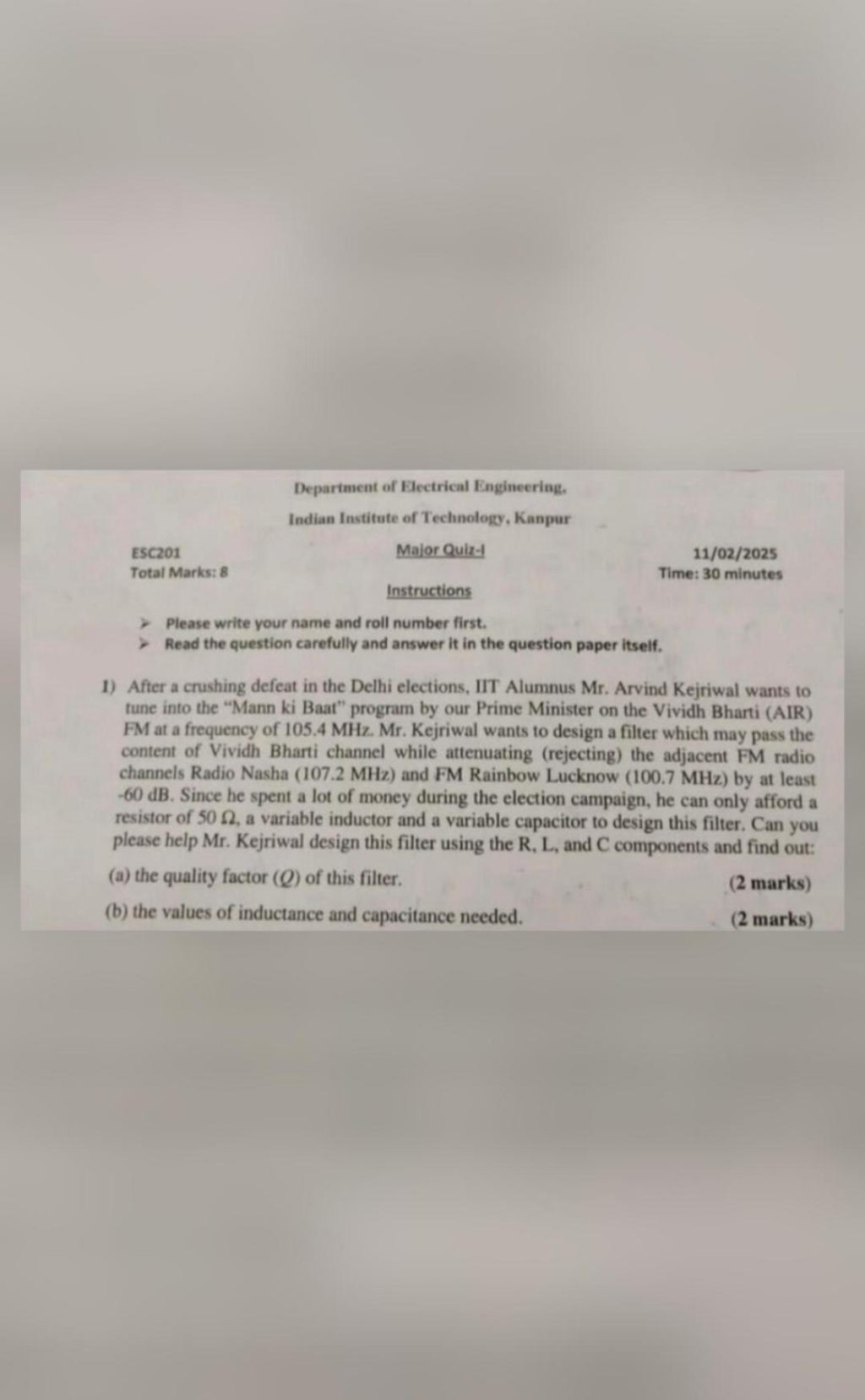
Wanted Exam to be More Engaging: IIT Kanpur on ‘Kejriwal & Mann Ki Baat’ Question
In a peculiar move that has garnered a lot of attention, Indian Institute of Technology (IIT) Kanpur has confirmed that a question paper asking students to design a filter for Arvind Kejriwal, the Chief Minister of Delhi, to help him listen to Prime Minister Narendra Modi’s ‘Mann Ki Baat’ after the Delhi poll loss went viral. The question was part of a mechanical engineering paper and was designed to test the students’ creativity and ability to think out of the box.
The question, which has left many scratching their heads, read: “Design a filter that can help Arvind Kejriwal tune into PM Narendra Modi’s ‘Mann Ki Baat’ after Delhi poll loss.” The question was met with a mix of amusement and confusion, with many taking to social media to express their surprise and bewilderment.
IIT Kanpur has since confirmed that the question was “real” and was part of a paper that was designed to make exams more engaging and challenging for students. The professor who drafted the question, who wishes to remain anonymous, likes to use “references to well-known personalities…to make exam questions more engaging.”
The question, while unusual, has sparked a lot of debate and discussion about the role of creativity in engineering education. Many have praised the professor for thinking outside the box and coming up with a unique question that challenges students to think creatively and come up with innovative solutions.
However, others have criticized the question for being too frivolous and not relevant to the course material. They argue that engineering exams should focus on testing students’ knowledge and skills in their field of study, rather than asking them to come up with creative solutions to hypothetical scenarios.
Despite the controversy, IIT Kanpur has stood by its decision to use the question, citing its aim to make exams more engaging and challenging for students. The institute has also praised the professor for his innovative approach to teaching and his ability to think creatively.
The ‘Mann Ki Baat’ question has also sparked a lot of debate about the role of politics in engineering education. Many have argued that engineering exams should remain apolitical and focused on technical skills, rather than incorporating references to political figures or scenarios.
However, others have argued that incorporating real-world scenarios and references to current events can help make engineering education more relevant and engaging for students. They argue that by linking course material to real-world issues and challenges, engineering students can gain a deeper understanding of the practical applications of their knowledge and skills.
In conclusion, the ‘Mann Ki Baat’ question has sparked a lot of debate and discussion about the role of creativity in engineering education. While some have praised the professor for his innovative approach, others have criticized the question for being too frivolous and not relevant to the course material.
Ultimately, the decision to use the question is up to the professor and the institute, and it remains to be seen whether this type of question will become more common in engineering exams in the future. One thing is certain, however, is that the ‘Mann Ki Baat’ question has generated a lot of interest and debate, and has sparked a lot of conversation about the role of creativity in engineering education.






